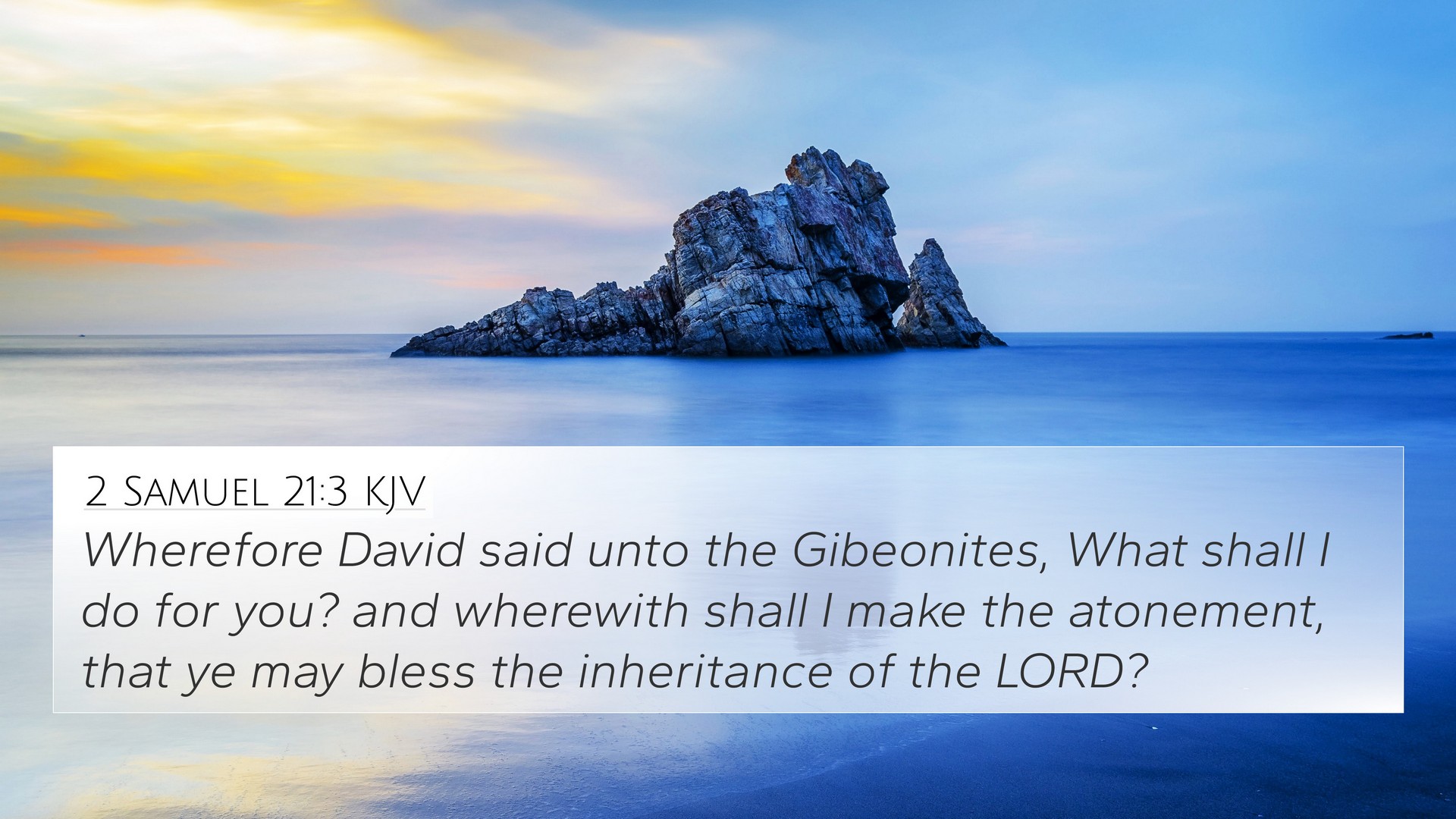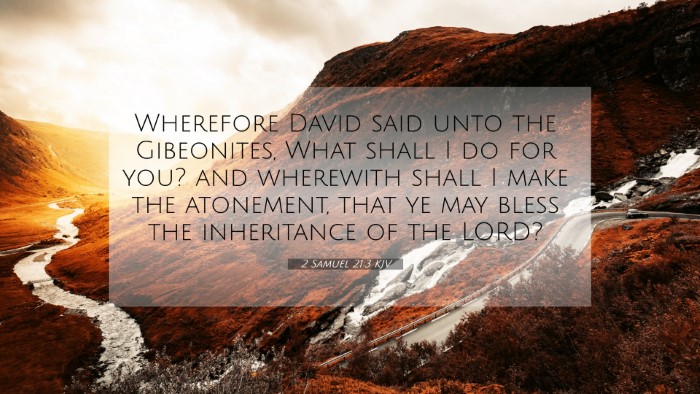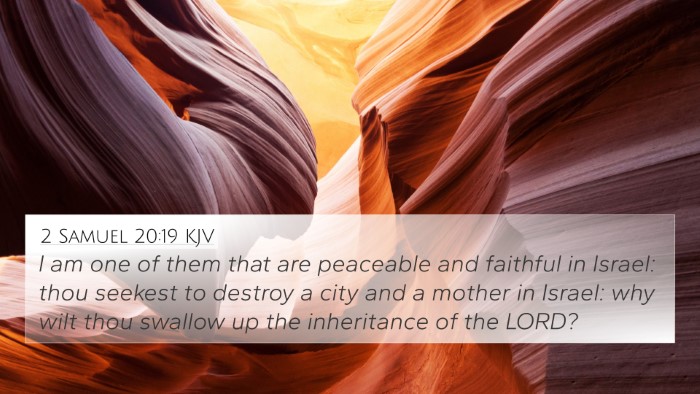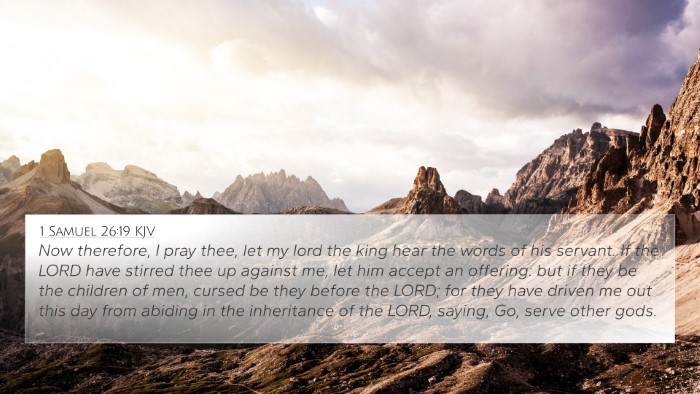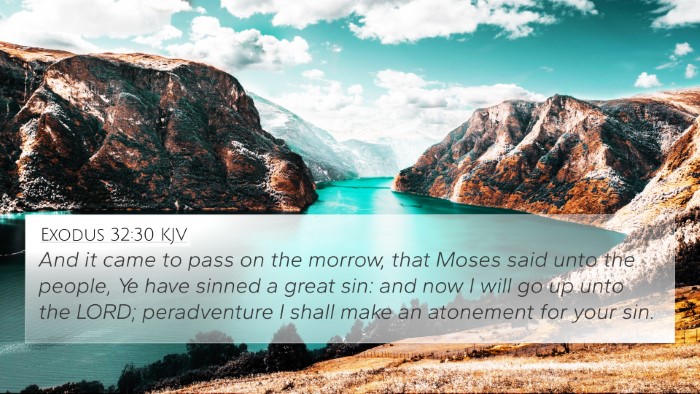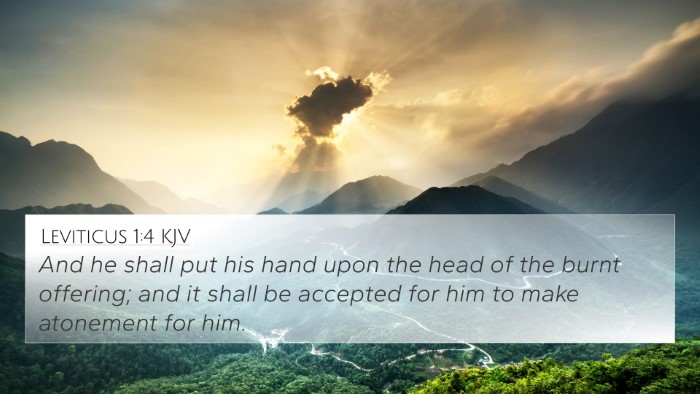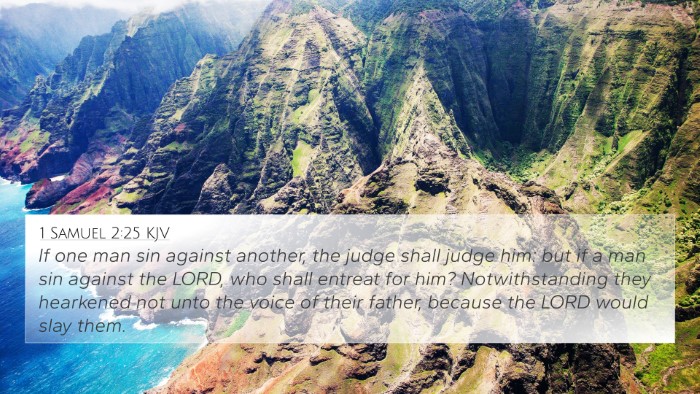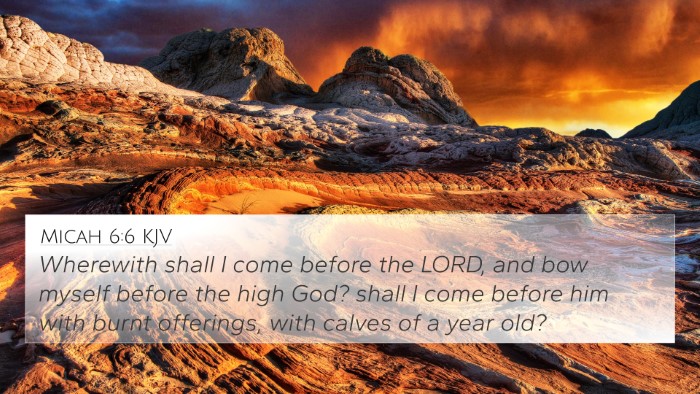Understanding 2 Samuel 21:3
2 Samuel 21:3 reads: "And David said to the Gibeonites, 'What shall I do for you? And how shall I make atonement, that you may bless the inheritance of the Lord?'
Contextual Background
This verse occurs in a narrative where King David is confronted with a famine that has lasted three years. Upon inquiry, he discovers it's because of the wrongs committed against the Gibeonites, a group that had made a covenant with Israel. This scenario highlights the concept of justice and atonement in Biblical Israelite society.
Verse Meaning and Interpretation
The inquiry of David reflects a leader's duty to seek reconciliation and justice for previous wrongs. Examining various public domain commentaries reveals the following insights:
- Matthew Henry: Henry emphasizes the importance of seeking atonement in the face of sin. The actions of David symbolize a wise leader who acknowledges previous injustices and seeks to correct them. Henry also underscores the Gibeonites' position and their importance in this reconciliation process.
- Albert Barnes: Barnes notes that David's request to the Gibeonites demonstrates his commitment to both divine and civic responsibilities. He argues that the famine is a consequence of divine judgment for Saul's actions against the Gibeonites, highlighting the interconnectedness of leadership and covenant loyalty.
- Adam Clarke: Clarke discusses the broader implications of David's actions for Israel, focusing on the theme of National Sin requiring National Atonement. He posits that David's desire to make things right with the Gibeonites reinforces the concept that leaders must be proactive in rectifying the sins of their predecessors.
Key Themes and Reflections
The overarching themes in this verse include:
- Justice and Atonement: This verse exemplifies the process of making amends and emphasizes that wrongs must be righted to restore balance.
- Covenant Relationships: The Gibeonites were once a people who made a covenant with Israel, and the violation of that covenant had repercussions that David recognizes.
- Leadership Responsibility: Kings and leaders bear the burden of their people's actions and must demonstrate integrity by addressing wrongdoing.
Cross References
Several other Biblical passages connect well with 2 Samuel 21:3, providing deeper insights into themes of justice, leadership, and covenant. Here are some key cross-references:
- Joshua 9:15: Discusses the original covenant made between Israel and the Gibeonites.
- 2 Samuel 21:1: Provides context concerning the famine and God's displeasure due to Saul's actions.
- Psalms 37:28: Reflects on the idea of God loving justice and not forsaking His saints.
- Exodus 22:22-24: Discusses the treatment and care of strangers and the need for justice.
- Isaiah 1:17: Encourages seeking justice, correcting oppression, and defending the fatherless.
- Micah 6:8: Encourages doing justice, loving kindness, and walking humbly with God.
- Matthew 5:23-24: Relates to the New Testament view of reconciling with others before presenting gifts to God.
Application and Reflection
This verse resonates with modern readers as it addresses the continuous need for leaders to be accountable, seek justice, and restore broken relationships. In today's context, whether in personal or communal aspects, the call to atonement remains relevant.
Conclusion
2 Samuel 21:3 is a powerful illustration of how previous injustices can ripple through time, affecting present circumstances. The insights from public domain commentaries reinforce the importance of making amends and highlight the rich tapestry of Biblical principles concerning justice and leadership.
Further Study
For those interested in deeper study, utilizing tools such as a Bible concordance or a cross-reference Bible study guide can facilitate discovering related verses and themes. Engaging in cross-referencing Bible study methods can also enhance understanding of narrative connections and thematic parallels across scriptures.
